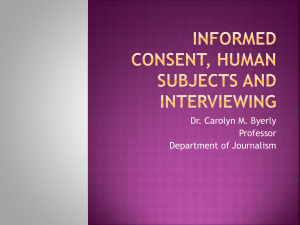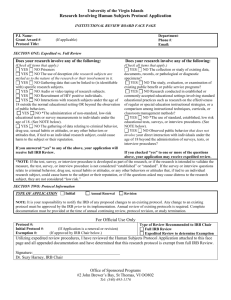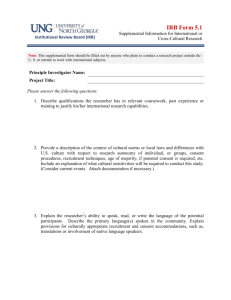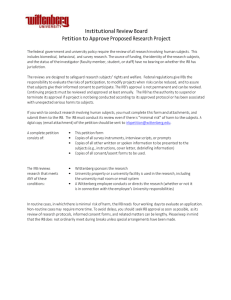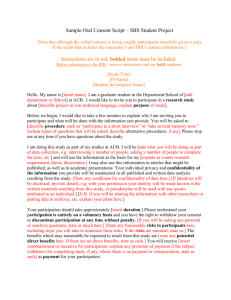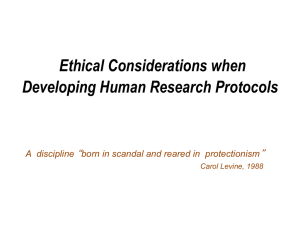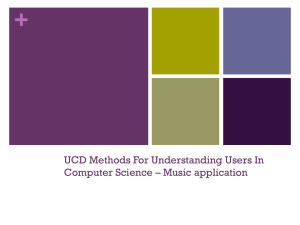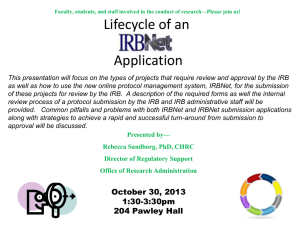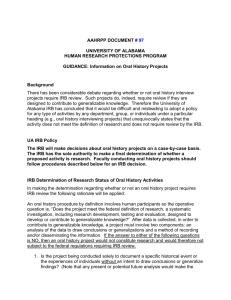Informed Consent, Human Subjects and Interviewing
advertisement
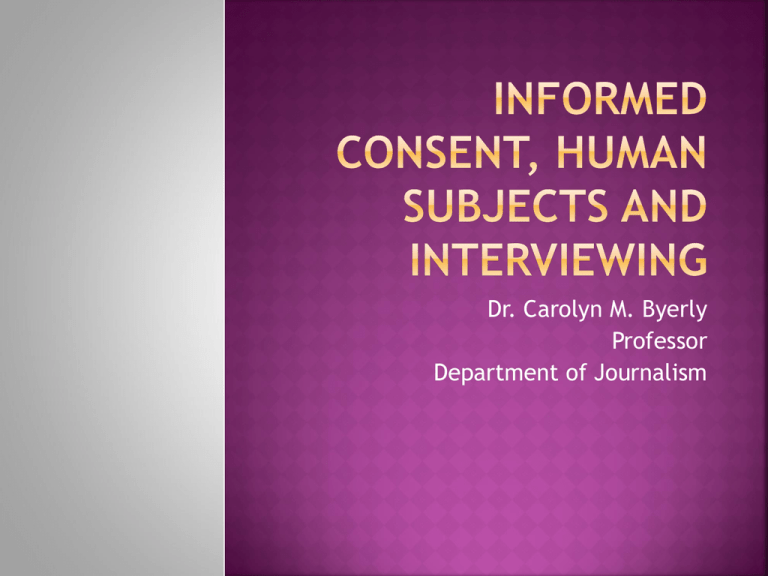
Dr. Carolyn M. Byerly Professor Department of Journalism Research involving human subjects requires their “informed consent,” which involves: Prior approval by IRB for the research, Use of ethical methods in the gathering of data Obtaining each participant’s signature on a consent form that has the “approved” stamp and date from IRB Is a source of first-person data in research that seeks subjective knowledge Is the oldest, most original way of gathering data, Involves the researcher in a more personal way than “objective” approaches (which separate the “knower from the known”), and Is interactional by nature. Interactional = an exchange between interviewer and human participant in a question-answer format. Interaction can be achieved through traditional survey method (use of a form that is completed), or An interview. A qualitative interactional method of data gathering in which a trained researcher uses questions to obtain information for a specific purpose from human participants In face-to-face (or mediated) communication. Human experience matters in the search for truth Knowledge is always personal The “personal” is always original and authentic The “person” is a source of useful data Interviews are a gift – be appreciative Use your power wisely – interviews are not an “equal” relationship Listen carefully and clarify when necessary Record everything you learn accurately Be respectful toward participants Stay within the purpose of the interview Stay within the bounds of approval by IRB. 1. 2. 3. 4. What is the purpose of the IRB process? How do you apply? What do you do if you have to change something in your methodology after you receive approval? What kinds of things are in the “consent form” that participants sign? Know who needs to sign off on application Write a clear, well-organized application Submit it to IRB at least a month before you plan to start work Do not begin interviewing till you get approval FORMS ON LINE AT IRB WEBSITE. ELEMENTS REQUIRED: Face page (signatures) Purpose + significance Timeline for work Personnel (PI + others) Method + procedures Population to be sampled Selection of participants Risks & benefits to participants Consent form (*no header or footer) You must submit a letter to IRB if you: Add or change personnel Change the research procedures You must receive approval for these changes. Also remember: You must submit a close-out report. Always observe the steps associated with “proper interview etiquette” Set appointment in advance Clarify purpose of interview Specify amount of time needed Answer participant questions about project Be on time Be friendly but professional A. Interview schedule is another way of saying questionnaire. B. A questionnaire contains the questions that the researcher will ask participants in the study. C. The questionnaire is well-organized, and D. May utilize several kinds of questions. Loosely structured (dialogue, open-ended): Q. What makes a good news program? Semi-structured (directed open-ended) Q. Which of the major news programs do you watch? Structured (closed-ended) Q. Which of the following radio stations to you listen to? [list] Some combination of the above (most are this) Separate the questionnaire into Basic data (often best at end) Gender, race, age, education, etc. Substantive questions Personal experiences Opinions Expert knowledge Closed-ended questions have limited selection of choices, e.g.: Do you have a high school diploma or GED? Yes____ No ____ Please indicate your annual income: ___ Over $100,000 ___ $75,000-100,000 ___ $50-000-$75,000 ___ $25,000-$50,000 ___ Less than $25,000 Question: Why do you believe so few African Americans own radio and television stations? Probe 1: Is access to capital a consideration? Probe 2: What about the application process? Level Thanks so much for coming, especially on such a cold day. Did you have far to drive? Level 2: requires trust I know you lost your broadcast license in 1999. Can you tell me more about the situation? Level 1: safe exchanges 3: involves full disclosure How has loss of your business affected your life and career? Keep Use probes or gentle reminders Let the interview on track participants skip questions or end early An IRB requirement Keep clear, accurate records Problem 1: You want to learn more about how young professionals use clothing ads to purchase professional attire. What are the benefits of a face-to-face interview over a written questionnaire they can fill out in private? Problem 2: You have just been hired to help your professor conduct interviews with middle-aged women to learn whether they pay attention to messages in a local breast cancer prevention campaign. You are still feeling sad over losing your grandmother to cancer and worry this will hinder your effectiveness. How can you handle this situation? Problem 3: You want to conduct your dissertation research on women and men who were sexually abused by their ministers. You know quite a few people in local churches who have had this experience. Is it ethical for you to include them in your study?
